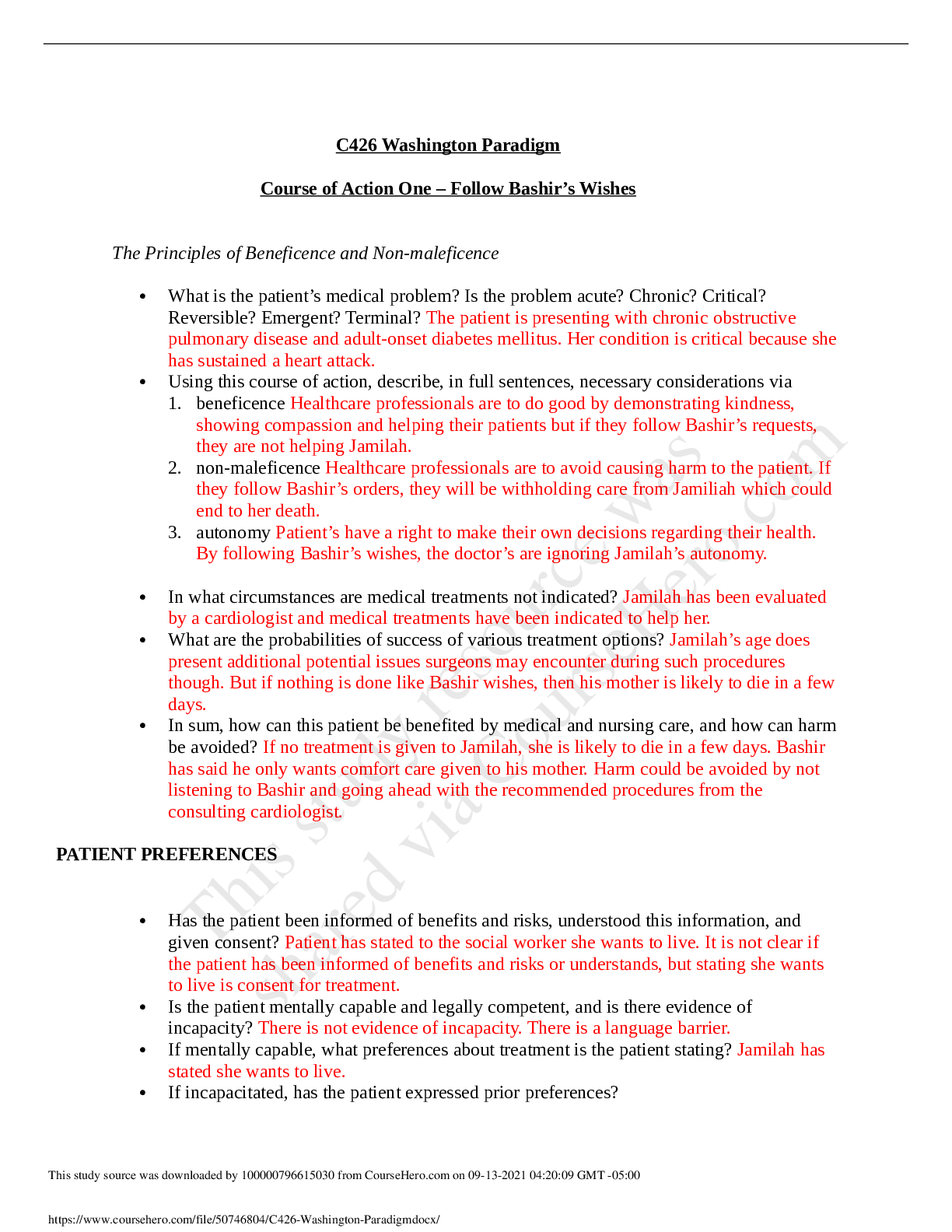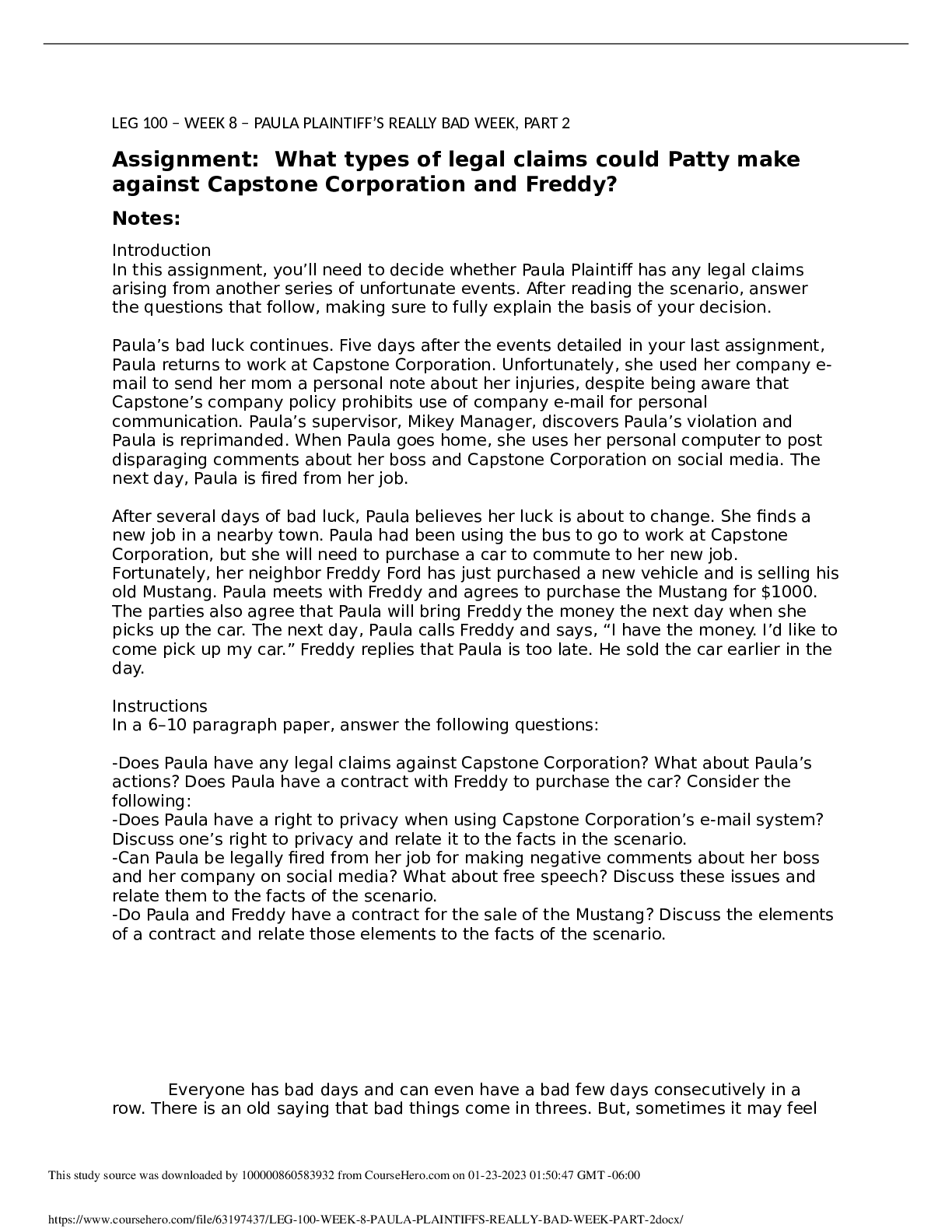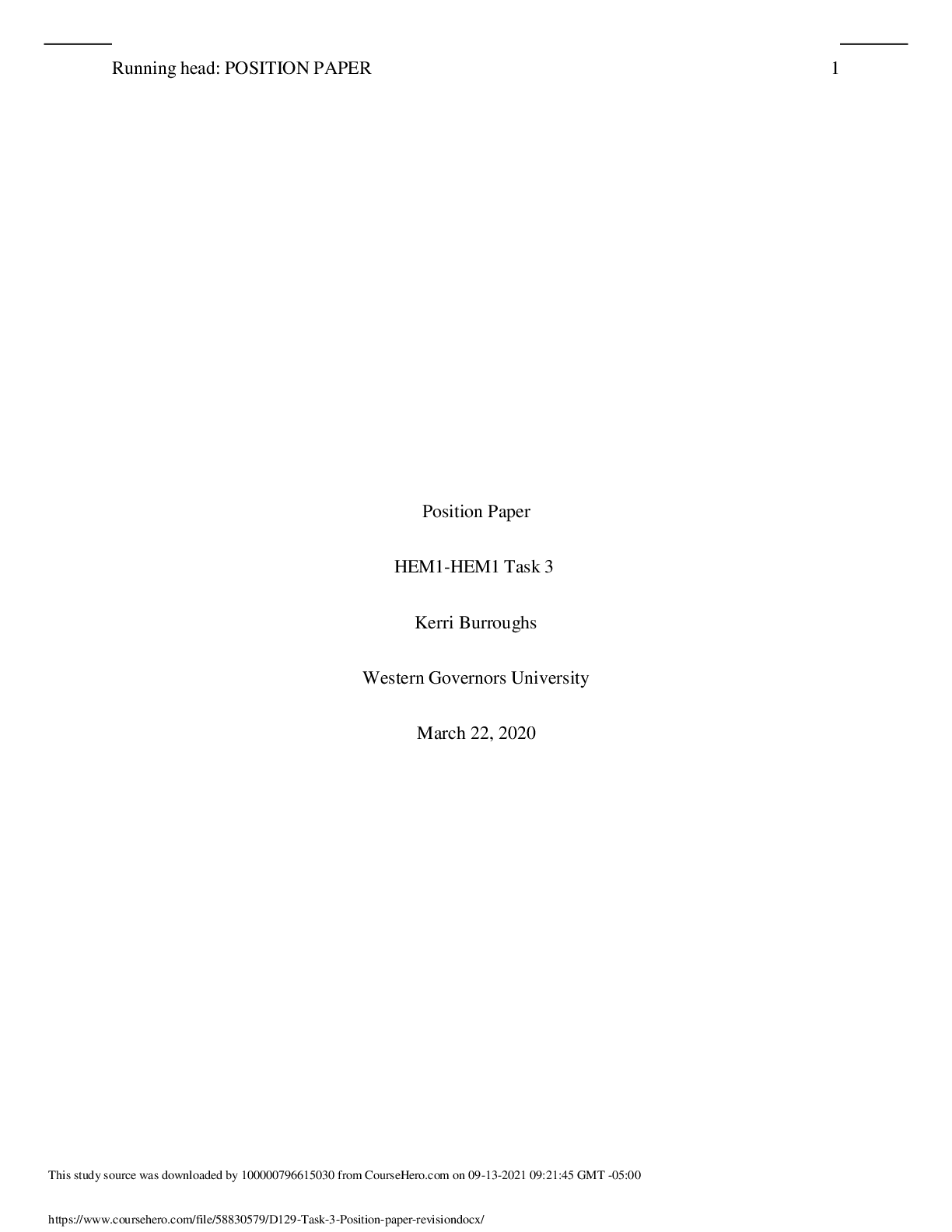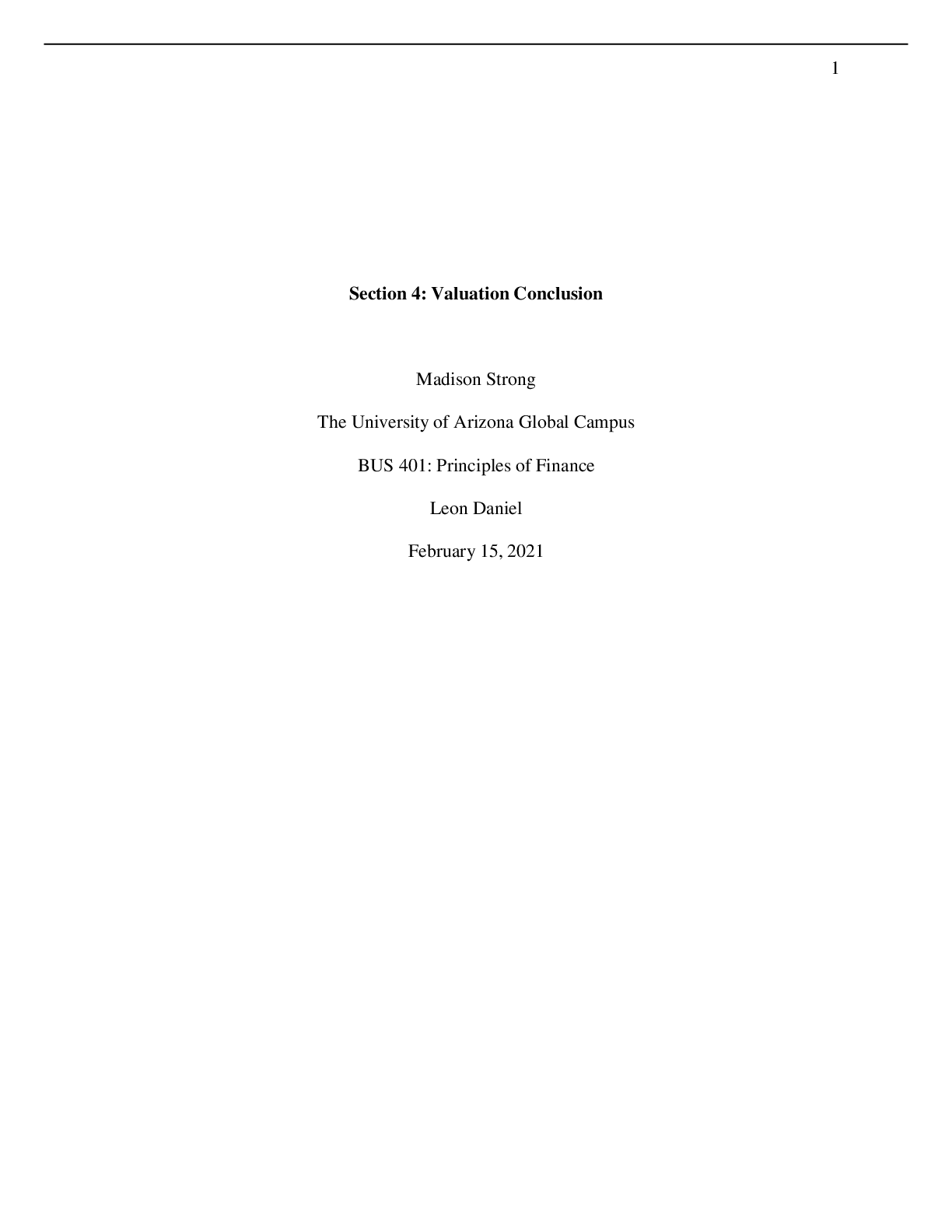C426 Washington Paradigm Course of Action One – Bashir’s Wishes followed
Document Content and Description Below
The Principles of Beneficence and Non-maleficence What is the patient’s medical problem? Is the problem acute? Chronic? Critical? Reversible? Emergent? Terminal? The patient is presenting with... chronic obstructive pulmonary disease and adult-onset diabetes mellitus. Her condition is critical because she has sustained a heart attack. Using this course of action, describe, in full sentences, necessary considerations via 1. beneficence Healthcare professionals are to do good by demonstrating kindness, showing compassion and helping their patients but if they follow Bashir’s requests, they are not helping Jamilah. 2. non-maleficence Healthcare professionals are to avoid causing harm to the patient. If they follow Bashir’s orders, they will be withholding care from Jamiliah which could end to her death. 3. autonomy Patient’s have a right to make their own decisions regarding their health. By following Bashir’s wishes, the doctor’s are ignoring Jamilah’s autonomy. In what circumstances are medical treatments not indicated? Jamilah has been evaluated by a cardiologist and medical treatments have been indicated to help her. What are the probabilities of success of various treatment options? Jamilah’s age does present additional potential issues surgeons may encounter during such procedures though. But if nothing is done like Bashir wishes, then his mother is likely to die in a few days. In sum, how can this patient be benefited by medical and nursing care, and how can harm be avoided? If no treatment is given to Jamilah, she is likely to die in a few days. Bashir has said he only wants comfort care given to his mother. Harm could be avoided by not listening to Bashir and going ahead with the recommended procedures from the consulting cardiologist. PATIENT PREFERENCES Has the patient been informed of benefits and risks, understood this information, and given consent? Patient has stated to the social worker she wants to live. It is not clear if the patient has been informed of benefits and risks or understands, but stating she wants to live is consent for treatment. Is the patient mentally capable and legally competent, and is there evidence of incapacity? There is not evidence of incapacity. There is a language barrier. If mentally capable, what preferences about treatment is the patient stating? Jamilah has stated she wants to live. If incapacitated, has the patient expressed prior preferences? [Show More]
Last updated: 2 years ago
Preview 1 out of 8 pages

Buy this document to get the full access instantly
Instant Download Access after purchase
Buy NowInstant download
We Accept:

Reviews( 0 )
$10.00
Can't find what you want? Try our AI powered Search
Document information
Connected school, study & course
About the document
Uploaded On
Nov 03, 2021
Number of pages
8
Written in
Additional information
This document has been written for:
Uploaded
Nov 03, 2021
Downloads
0
Views
175

 HIST410Nk Week 1 Assignment Case Study – Imperialism and Genocide.png)


.png)









